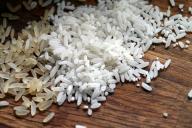Cherry not only pleases the eye with its beauty, but also gives us tasty and healthy berries.
Let's discuss all aspects of growing cherries to help you get a bountiful and high-quality harvest.
Choosing a location and soil for planting cherries
When choosing a location for planting a cherry tree, there are several important factors to consider.

Firstly, cherry prefers sunny areas protected from strong winds, said Anastasia Kovrizhnykh .
Secondly, cherries grow best on loamy or sandy loam soils with a neutral or slightly acidic reaction.
You should not choose areas with a high groundwater level or stagnant moisture.
Planting cherry trees
The best time to plant cherries is spring, when the soil has already warmed up, but the buds have not yet begun to bloom.
Cherry trees can be planted in the fall, but it should be taken into account that young seedlings may not have time to take root and may die from winter frosts.
When planting cherries, it is important to correctly position the root collar of the seedling - it should be 2-3 cm above the soil level.
After planting, the cherry tree should be watered generously and the soil around the trunk should be mulched.
Cherry tree care
Proper care of cherries includes regular watering (especially during flowering and fruit ripening), fertilizing, pruning, and protection from diseases and pests.
Cherry loves abundant but rare watering; it is enough to water it once a week, but so that the soil is saturated to a depth of 40-60 cm.
Cherry is fed 2-3 times per season: in spring with nitrogen fertilizers to stimulate growth, in summer and autumn with potassium-phosphorus fertilizers to improve fruiting and prepare for winter.
Cherry pruning is carried out annually, in the spring, before the active sap flow begins. At the same time, all damaged, dry and crown-thickening branches are removed.
Control of cherry diseases and pests
To protect the cherry tree from diseases and pests, it is necessary to conduct regular inspections of the tree, as well as preventive treatments with fungicides and insecticides.
It is important to remember that chemicals should be used strictly according to the instructions and not exceed the recommended doses.
Cherry harvesting
Cherry harvest is usually collected in July-August, when the fruits acquire a characteristic color and are easily separated from the stalk.
It is best to pick cherries in dry weather, after the morning dew has melted.
In conclusion, I would like to note that the cherry is a tree that requires attention and care, but in return it will give you a generous harvest of tasty and healthy fruits.
Earlier we wrote about why you need to thin out carrot seedlings.









